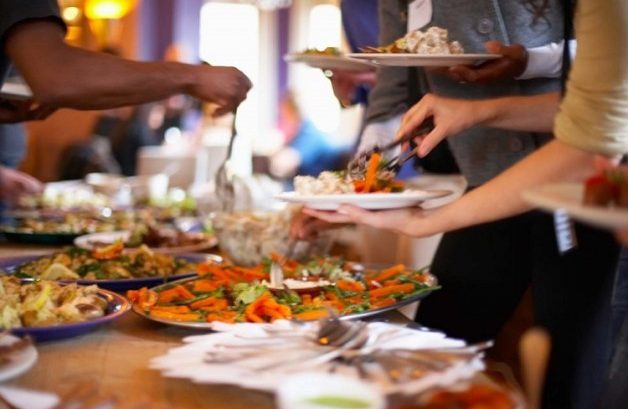Dodging the Dangers In Your Turkey Dinner
Thanksgiving . . . friends, family, and feasting. And, for most people, the aromas of turkey, stuffing, and pies wafting through the house.
We know we’ll overeat, but we shrug and tell ourselves, “It’s only once a year, so why not?” Many of the foods we encounter at the traditional Thanksgiving meal are not only delicious, but available only on that day, so we’re more likely to overindulge. Then there’s the guilt attached to refusing Aunt Martha’s special dish as she proudly offers you a second helping.
Before you sit down to the annual feast, your concierge doctors at MD 2.0 in Jupiter, Florida, would like to offer some food for thought.
According to the New York Times, the average American consumes about 4,500 calories and 229 grams of fat on Thanksgiving day.
“It’s like a tsunami of fat coming into the body,” Dr. Pamela Peeke, assistant clinical professor at the University of Maryland School of Medicine, told the Times. But over and above the impact to a person’s weight, there are other considerations when ingesting that much food over such a short period.
The chances that your stomach will rupture (gastrointestinal perforation) is extremely small. The extra surge of food, however, stresses numerous organs in your body. The stomach is stretched beyond its typical eight-cup capacity to press on adjacent organs; food is forced back up into the esophagus, which can trigger heartburn; nausea may set in; and, because it can take up to 12 hours to digest such a heavy meal, deep sleep will be interrupted.
The most concerning impact of excessive overeating, however, is the strain it places on the heart. An indulgent feast such as we enjoy on Thanksgiving requires the heart to pump more blood to the stomach and intestines to digest the extra food. This can stress the heart as much as extreme physical exertion or a sudden emotional shock. One study found that eating such a heavy meal increases the risk of heart attack by four times within two hours of eating. Another study found a seven-fold risk. Researchers suspect that, in addition to the extra demand on the heart for blood, which raises blood pressure, a high-fat meal might cause the blood to clot more easily.
Another possibility that can result from a high-food intake is a gallstone attack. Although rarely fatal, the pain and symptoms have been compared to that of a heart attack, and described as “excruciating.” Such an attack can be directly connected to the excess bile secreted by the gallbladder in response to the demands of digestion.
Finally, another danger related to overeating (especially when combined with alcohol intake) is the possibility of falling asleep behind the wheel on the way home from the feast. Although the typical post-meal drowsiness (popularly known as “food coma”) is often attributed to the tryptophan in turkey, it’s actually due to the surge of blood to your digestive system, which deprives your brain, thus making you sleepy.
Your concierge physicians at MD 2.0 love Thanksgiving as much as you do, and we don’t want to dampen your festivities. Just be aware that, in addition to your feeling uncomfortably full for some hours afterward, your body won’t appreciate a super-calorie load.
So what can you do? In advance of the meal, think about which of your favorite foods are likely to be available, and plan to stick to those. You can have mashed potatoes any time, for example, but the green bean casserole and the turkey dressing are generally specific to Thanksgiving. The same with rolls vs. cranberry sauce. Rolls aren’t special to the day—cranberry sauce is. Cheetos or Chex Mix you can get all year long. But candied yams? Not so much.
Try to balance out fat-heavy selections with lighter fare. Orange-glazed carrots carry a lighter fat-load than creamed peas. Stuffed celery sticks are more easily digested than sausage-stuffed mushrooms in cheese sauce.
Then take less of your favorites than you think you have room for. You can always go back for more later. A plus with this approach: You’ll flatter the person who made the dish if you let them see you having seconds.
If you can wait a couple hours after the main meal before having dessert, you’ll give your body a bit of time to digest what you’ve already thrown at it. Plus you’ll likely enjoy the dessert more when you give your palate a rest.
And when driving home, let someone else take the wheel if you’re feeling the least bit sleepy. Or postpone the trip, if necessary.
On Thanksgiving, eat, drink, and be merry; just don’t overdo it, and you’ll enjoy the holiday a lot more.

